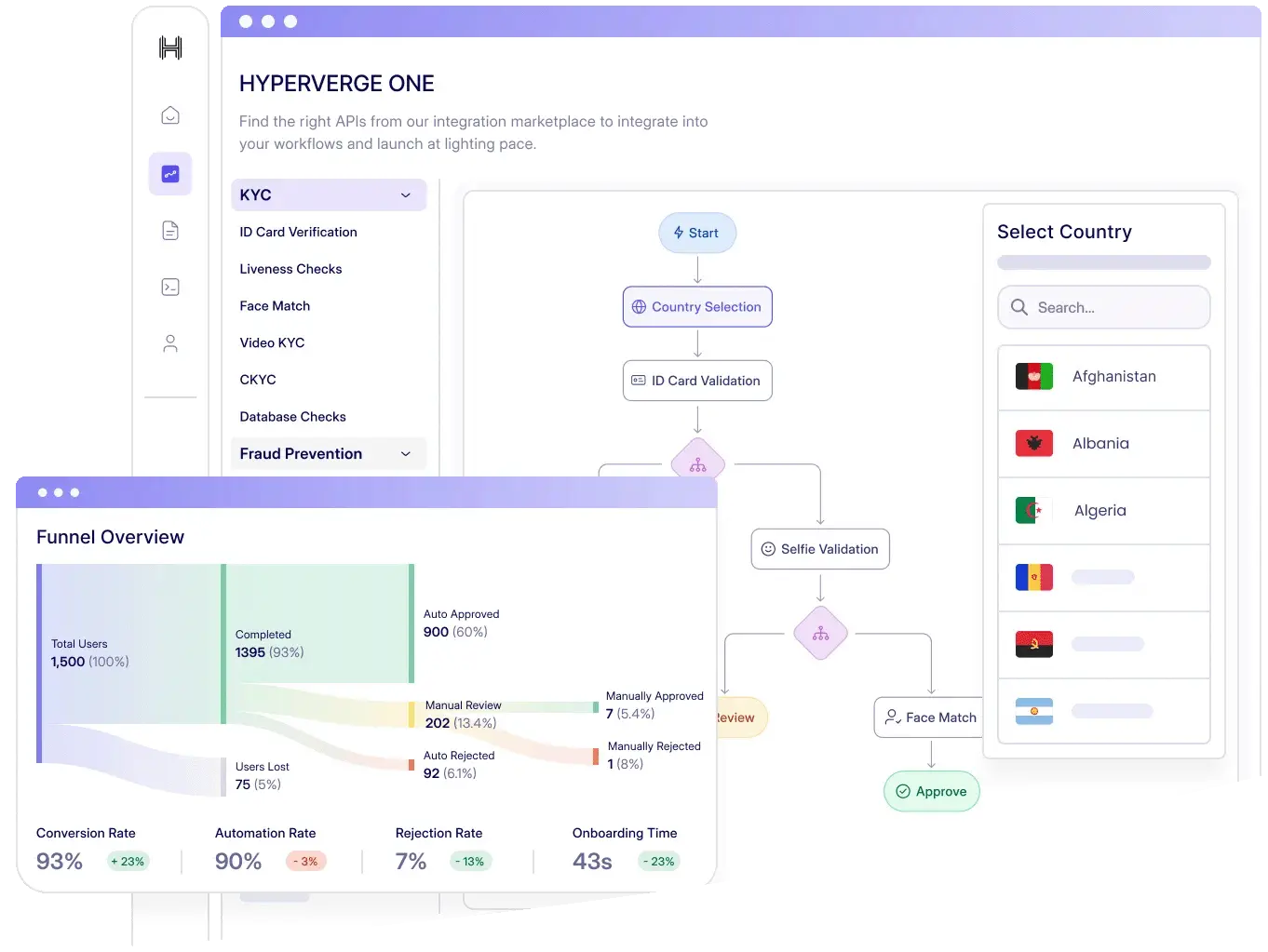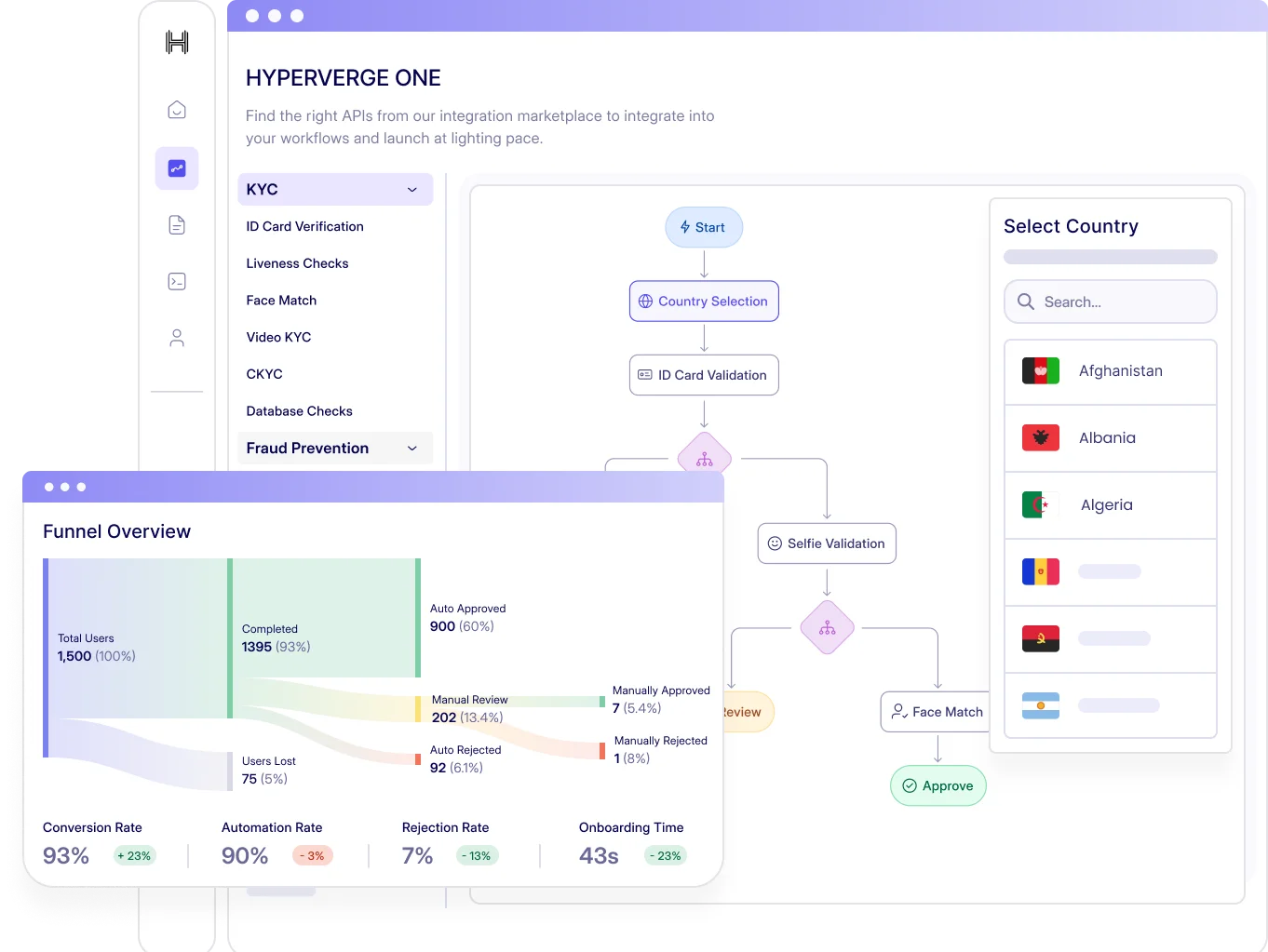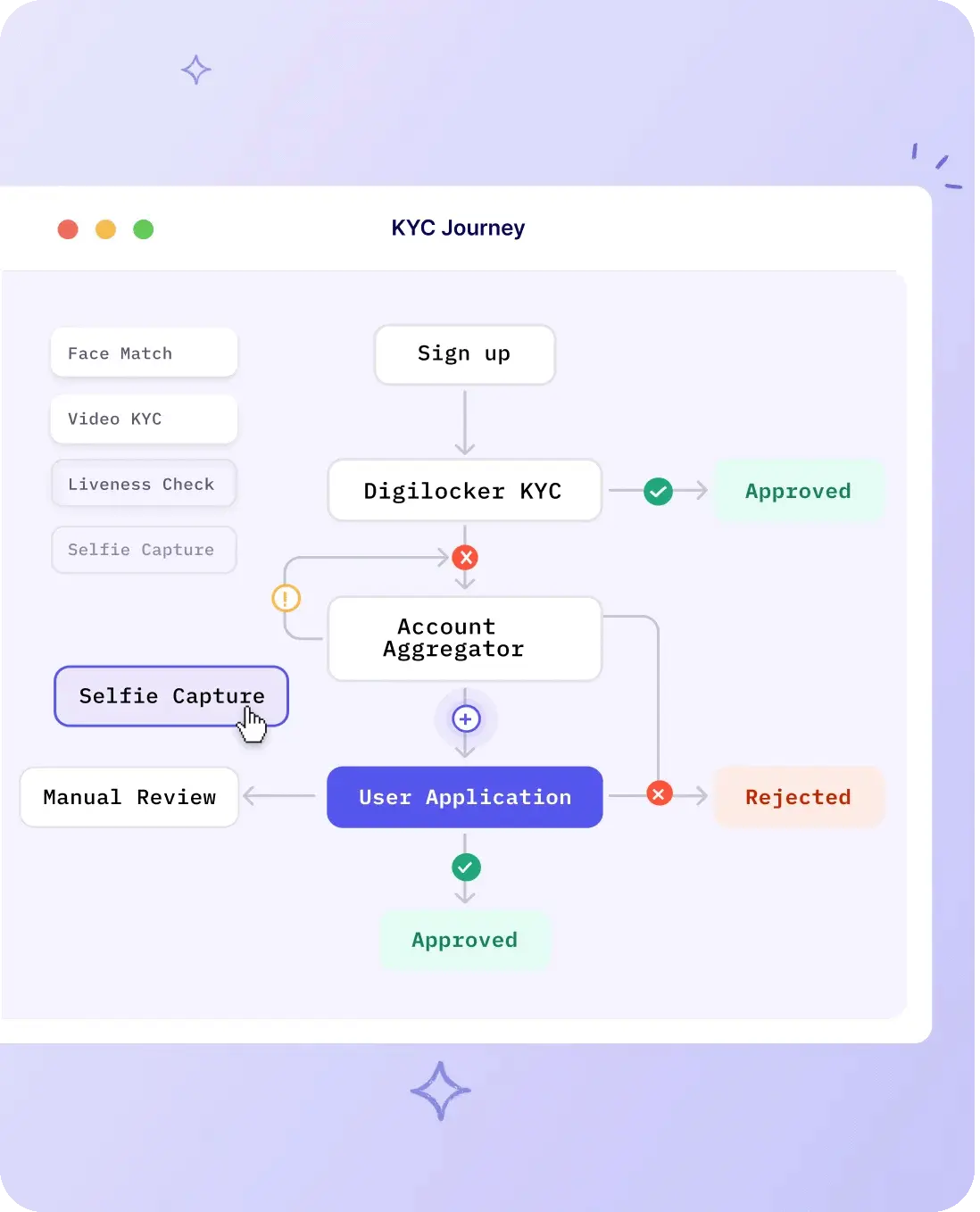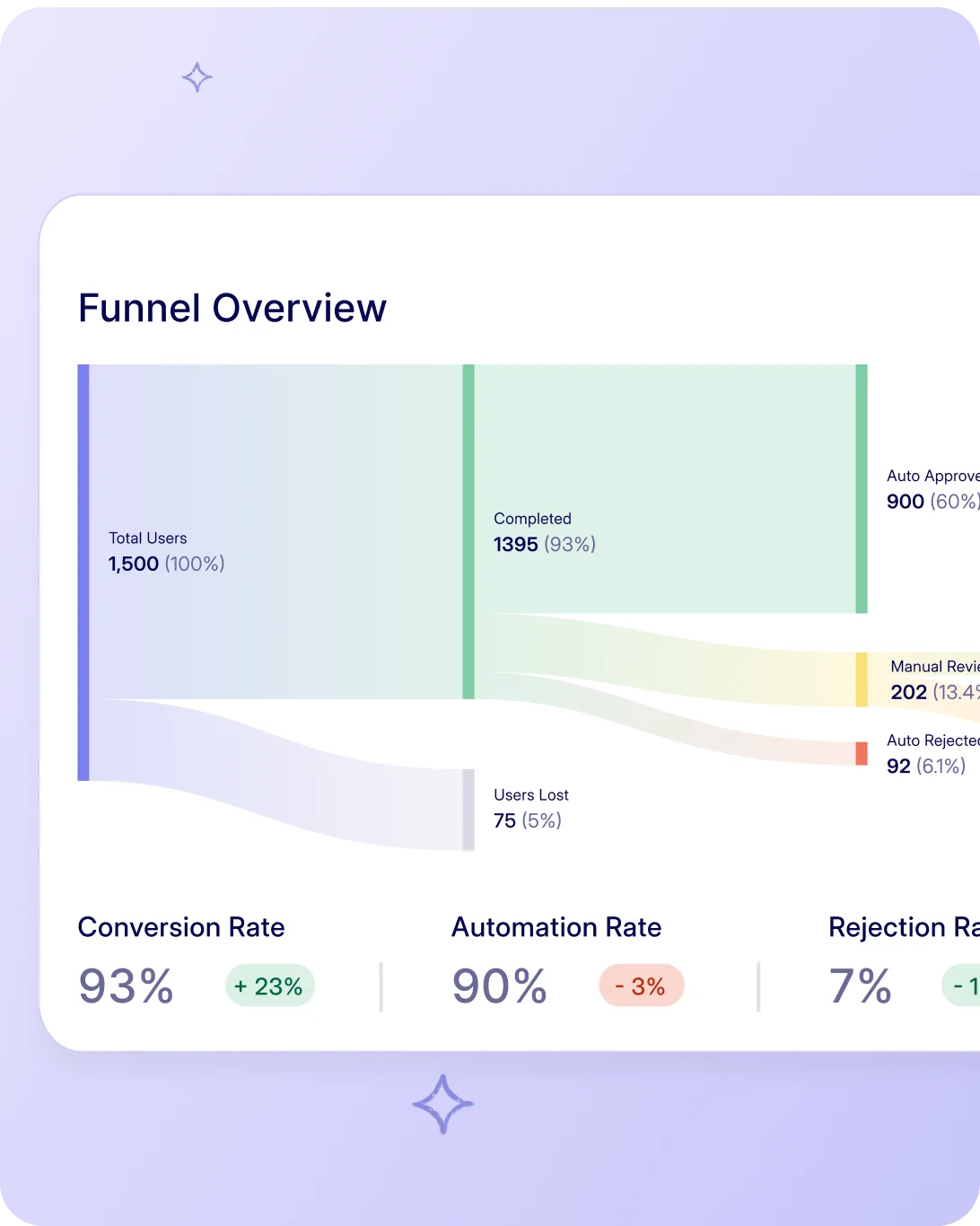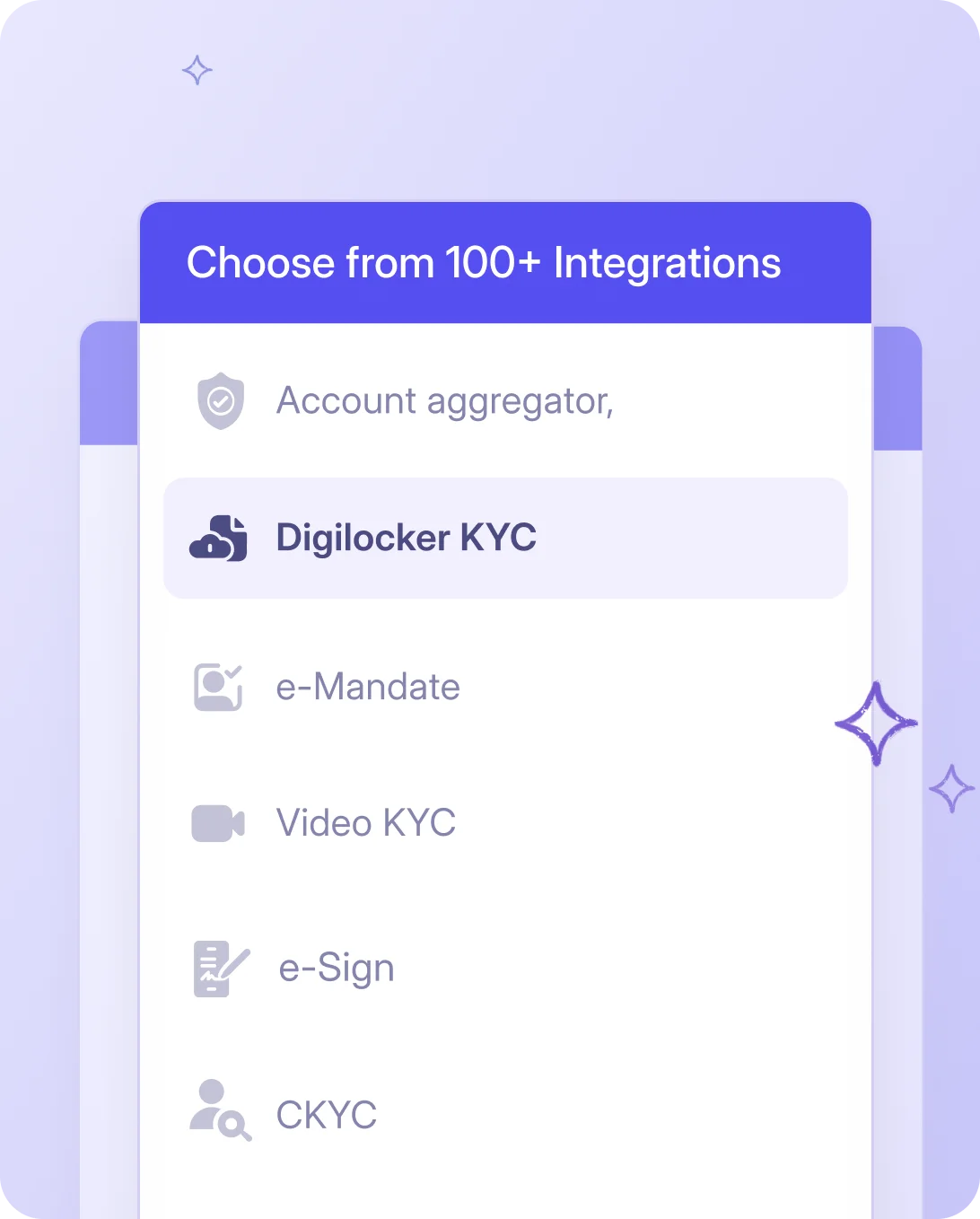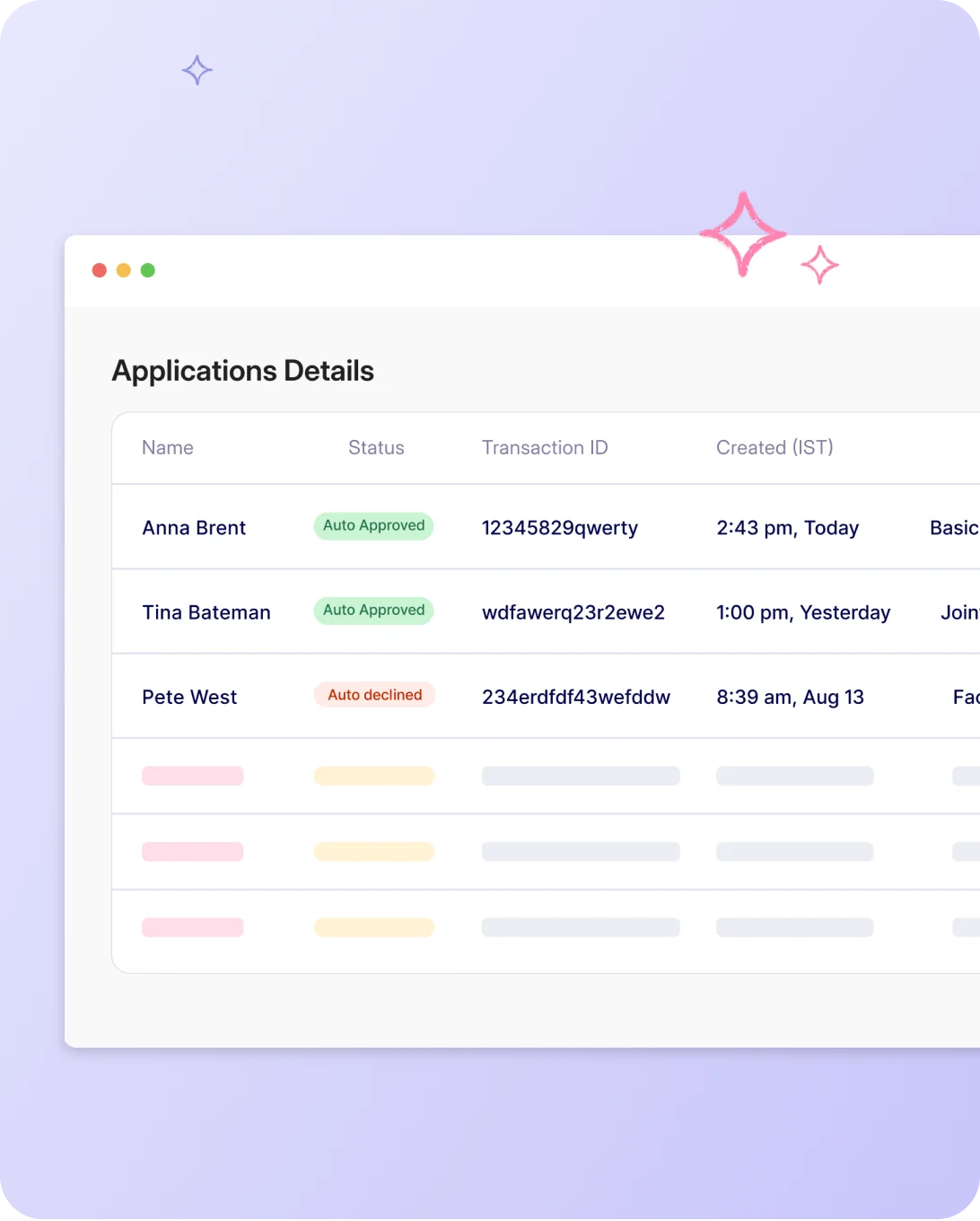Reduce drop offs while
onboarding customers
Our cutting-edge technology operates seamlessly on low
bandwidths and low-end devices, ensuring smooth customer
onboarding with high customer conversion rates.
0 %
Completion Rate
0 %
Auto Approval Rate
0 %
Reduced User Drop-off

Top 3 Challenges Product Teams Face
Multiple vendor integrations and change management take focus away
from business metric optimisation. Here are the top three challenges:

Customer Drop-offs
Identifying friction areas and integrating backup vendors are complex and time-consuming

Delayed Journey Launches
New acquisition journey launches and time-to-market are impacted by limited IT bandwidth

Inability to Experiment
Scarce IT resource hinder quick experimentation and agility to improve business metrics
HyperVerge ONE for Efficient Onboarding
Enhance your customer onboarding process and design swift financial
acquisition journey launches to achieve industry-best conversion rates.
No-Code Workflow & UI Builder
Analytics Dashboard
Integrations Supported
Application Review Portal
Build end-to-end journeys with
HyperVerge ONE
Customizable UI
Customise the front-end design to match your branding and UI/UX needs
Omni-channel nudges
Send nudges to users via email, whatsapp or SMS to resume journeys from the point they dropped-off
Downtime protection
Ensure smooth user experience with automated fallback options, even during API downtimes
Increase conversion rates in 90 days

Analyse your current funnel with our experts

Start with an optimized journey for your industry

Personalize the journey based on your users or partners

Test and optimize to improve performance
Customers love HyperVerge!
Frequently
asked Questions
How to ensure fraud prevention in the customer onboarding process?
What is the business impact of using an onboarding and verification platform?
How does an identity verification software facilitate user onboarding and help verify users?
Is the platform suitable for businesses of all sizes, and can it scale with our needs?
What does Case Management do, and how does it streamline the review process?
Latest Blogs
The latest news, updates and more about KYC industries & related market resources from our team.

 US
US
 IN
IN
